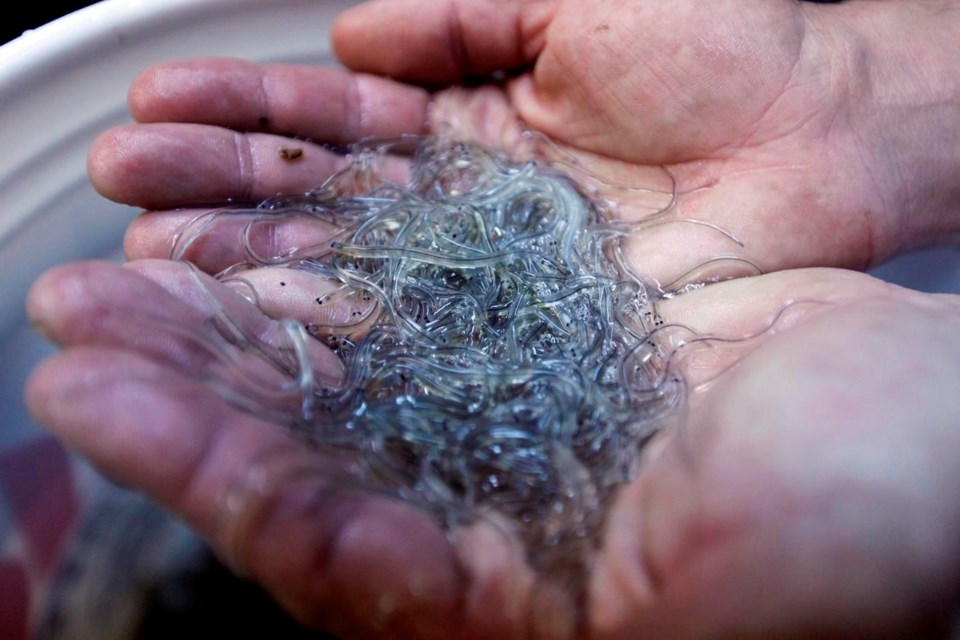HALIFAX — A Nova Scotia company is seeking to have a court overturn the recent federal decision to close the lucrative eel fishery in the Maritimes.
The federal Fisheries Department closed the elver fishery in Nova Scotia and New Brunswick for 45 days last weekend to conserve the stock from poachers.
In response, Wine Harbour Fisheries asked the Federal Court of Canada on Wednesday to review the decision by federal Fisheries Minister Joyce Murray.
Michel Samson, the company’s lawyer, said in an interview Thursday that his client doesn’t believe the minister’s decision was reasonable.
“We believe there were alternatives, whether it be not issuing the order in the first place or issuing an area-specific order rather than closing down the entire commercial fishery,” Samson said.
He called the closure “arbitrary” and said the move has had a “devastating impact” on his client and its workers. Wine Harbour Fisheries was only able to land 33 kilograms of a quota of 1,032 kilograms before the closure went into effect, he said.
The Fisheries Department has said the closure was necessary following complaints about violence and intimidation linked to poaching.
In the court application, Wine Harbour Fisheries maintains that it and other licence holders tried many times to persuade the department to take enforcement steps to deal with conflict on the rivers.
“To the extent there is unauthorized fishing, this is due to the (department’s) failure to properly enforce the law and prevent unauthorized fishing,” the document states.Â
In an email sent Tuesday, the department said that before initiating the closure it had engaged with all commercial licence holders as well as with First Nations chiefs whose communities are harvesting elvers under communal commercial licenses or interim understandings.
It said the elver fishery, which had a total allowable catch of 9,960 kilograms, has to be managed closely.
“This was not possible due to an unprecedented amount of unreported activity,” the department said. “The scale of the unreported fishing is such that it presents a serious risk to the conservation of the … American eel stock and the safe and stable management of the fishery. That is why closure is required.”
The department has 10 days to respond to the latest legal move, although Samson said it will likely be a while before the issue is heard by a judge.
He said a judicial review that was launched last year over the removal of 14 per cent of the commercial quota without compensation was only heard earlier this year, with a decision likely to be issued in May.
“The season will be over before we have a chance to get in front of a judge,” said Samson, who added that a similar closure in 2020 also cost his client financially.
“This (closure) has happened twice … we are not looking for a three-peat of this,” he said.
This report by The Canadian Press was first published April 20, 2023.
Keith Doucette, The Canadian Press



